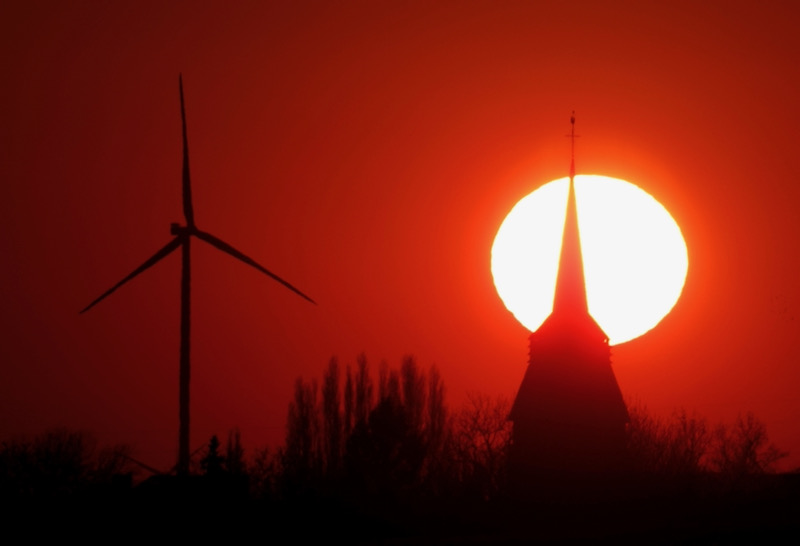At Pentecost we celebrate the outpouring of the Holy Spirit on the Church and the responsibility Jesus confers on us to continue his mission. The call for renewal at this time includes a renewal of creation and with that a responsibility for the change that needs to happen, not waiting for action from the powerful, but our vision of hope that releases the power to act in shaping a just world.
We face an environmental crisis, but we have hope. The urgency of the situation, and the enormity of the challenges we face, have spurred Catholic Bishops of England, Wales and Scotland, to produce letters to be read out in all Catholic parishes this weekend. These letters speak of what role the Catholic Church and our faith must play in our shared care for God’s gift to us. This is exceptional for us but we live in exceptional times.
As we gradually emerge from the tragedies and restrictions of the pandemic we are faced with remarkable challenges and opportunity. We will emerge better or worse, not the same and Pope Francis calls us all, “at this critical juncture, it is our duty to rethink the future of our common home and our common project”. When the UK host the G7 in June and COP26 in November this year, the leadership of these international summits, and all of us, must be the catalyst for transformation and hope to reach out to all those who are facing the harsh reality of the climate crisis and the continuing threat of the Covid virus.
Tomorrow we mark the sixth anniversary of the publication of Laudato Si, Pope Francis’s letter to the world, by urging world leaders to reinvigorate our hope through a new recommitment to the promises they made in 2015 when signing the Paris Agreement. The words of hope and promises made gave us all hope. But hope needs nurture. We hear from the young people in our dioceses how vital this issue is to them. They understand it, the cry of the earth and the cry of the poor is naturally part of their faith. They are right to expect that we honour the earth, our common home, as a gift to all of humanity and that its resources are not just for us to use now but to be preserved and passed on to future generations.
As a global Church we witness the voices from our partner dioceses and parishes in other parts of the world – in Brazil, Bangladesh, Fiji, and South Sudan to name a few – their stories of drought and hunger, extreme flooding, rising sea levels polluting ground water wells and more frequent cyclones and hurricanes washing away lives, homes and livelihoods – alerting us to how fragile life and survival can be from one moment to the next, for some of the world’s most vulnerable communities.
At the G7 and COP26 summits there must a renewal of hope and faith starting with agreements on free and fair access to vaccines including a waiving of intellectual property rights. Covid and climate don’t recognise national borders and we must be approaching them both with the common good in our hearts. For climate this means keeping to below the vital 1.5C temperature rise which scientists tell us is vital for life and realising those promises of financial support to those already suffering from this climate crisis. All this must prompt a wider discussion, intent and will to “emerge better” to protect our common home.
We must all look to reset our lifestyles and way of thinking. As individuals and Church our own local concern and action is necessary, removing the obstacles on the path to climate transition, by making the small and sometimes bigger changes needed to our day-to-day life that are more sustainable. For example, in Salford Diocese our Guardians of Creation project is working rapidly to decarbonise our diocese and provide a toolkit to support the interest from others to do the same. Dioceses in Scotland are in the process of divesting from fossil fuels investments and all parishes are being encouraged to sign up to schemes which encourages the environmental mission of the Church and solidarity with all.
Scientists tell us that time is limited. All of us must, therefore, work with a sense of urgency to discern what needs to be done and to make the changes required. The Christian faith gives us the hope and love needed to drive the change we want to see, and at Pentecost, our faith and hope finds renewed energy to propel us forward, allowing us to believe in what is still possible, by being part of the solution to the climate crisis through our words and actions.
Bishop John Arnold, Catholic Diocese of Salford and Bishop William Nolan, Catholic Diocese of Galloway



 Loading ...
Loading ...
What do you think?
You can post as a subscriber user ...
User comments (0)